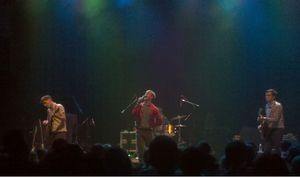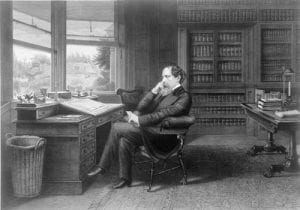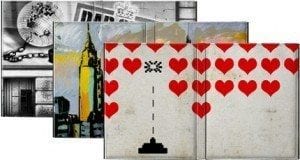
The ’80s were so great, The Drums decided to relive them for a third time
Successfully pulling off an effective sophomore album is a tricky business. Does a band continue on with the music that garnered it praise, perhaps refining things a bit but mostly carrying on with what worked; or does it expand that sound, making radical alterations, going for broke and possibly alienating its fans and critical backers? Landmark albums such as “The Bends,” “Astral Weeks” and “Paul’s Boutique” were created when artists took a chance on elevating their musical aspirations. The Drums have opted for the former and, it must be noted, safer route. After pretty thoroughly scavenging the musical landscape of the post-punk era on their self-titled debut, Jonathan Pierce and company have gone back for seconds with their follow up, “Portamento.” To their credit, the boys have somewhat toned down the on-the-nose homages and self-aware posturing; everything’s a bit less precious this time out. Ultimately, however, one’s enjoyment of this album is going to be dictated by the listener’s level of tolerance for four Gen-Y, Brooklyn boys who sing and play music like Englishmen from 1983.
The term “Portamento” refers to a gradual slide from one note to another. By christening their sophomore album as such, The Drums are ostensibly heralding it as the next, transitional leg in a musical journey; however, the differences between the musical sensibilities of this album and its predecessor are negligible. The band hit all the same musical landmarks from The Cure to the Smiths to New Order with mixed results. Album opener, “Book of Revelation” succeeds on the basis of Jonathan Pierce’s Morrissey-channeling vocals and morbidly romantic lyrics: And I believe/that when we die, we die/so let me lay here tonight/let me lay here tonight. “I Need a Doctor” features a splendidly spastic drum rhythm that recalls Closer-era Joy Division. On the other end of the spectrum is “Searching for Heaven,” a solemn low point for the album which finds Pierce philosophically musing in a pathetic whine over a synthesizer melody that sounds like it was almost directly lifted from “Trans-Europe Express.”
Having said that, the melodies do at times rise above the fray of 80’s nostalgia. Such is the case with standout track and first single, “Money,” an infectious pop gem where a simple, surf-rock guitar and Pierce’s loopy vocals marry quite nicely over a rollicking bass line. “I Don’t Know How to Love” is another fine moment where the band drop any pretense of aping a specific artist and seem dedicated to simply creating good pop music.
Still, the vast majority of songs land inertly, coming and going like an agreeable house guest: he doesn’t show up drunk at 3 a.m. hitting on your teenage daughter, but he doesn’t make much of a charming impression either. Songs like “What You Were” and “Hard to Love” sound like interchangeable, innocuous New Order knockoffs with Pierce lamenting the loss of a relationship. The musical pillaging is just too pervasive and obvious to take Pierce’s wounded lover act at face value. It feels more like tortured artist dress up.
“Portamento” is a fleeting work that never tries to rise above its self-imposed trappings. It’s pleasant enough, but most definitely slight. It is the sound of a band that’s not so much comfortable in its own skin as in Robert Smith’s. When they first hit the scene, The Drums were caught in the unfortunate position of arriving way too late to the 80s cannibalization feast while also being perhaps the most shamelessly derivative group of the whole bunch. There’s a brazen and nearly admirable stubbornness to the way The Drums seem intent on riding this wave well past its crest, refusing to budge even when it’s bottoming out and harmlessly lapping at the shoreline. That may be the album’s only real chance for notoriety: by going down as the death knell of the new-wave revival. Perhaps then we can all get on with the inevitable era of the grunge throwback, when bands furiously toil to rewrite long-forgotten Candlebox songs.












